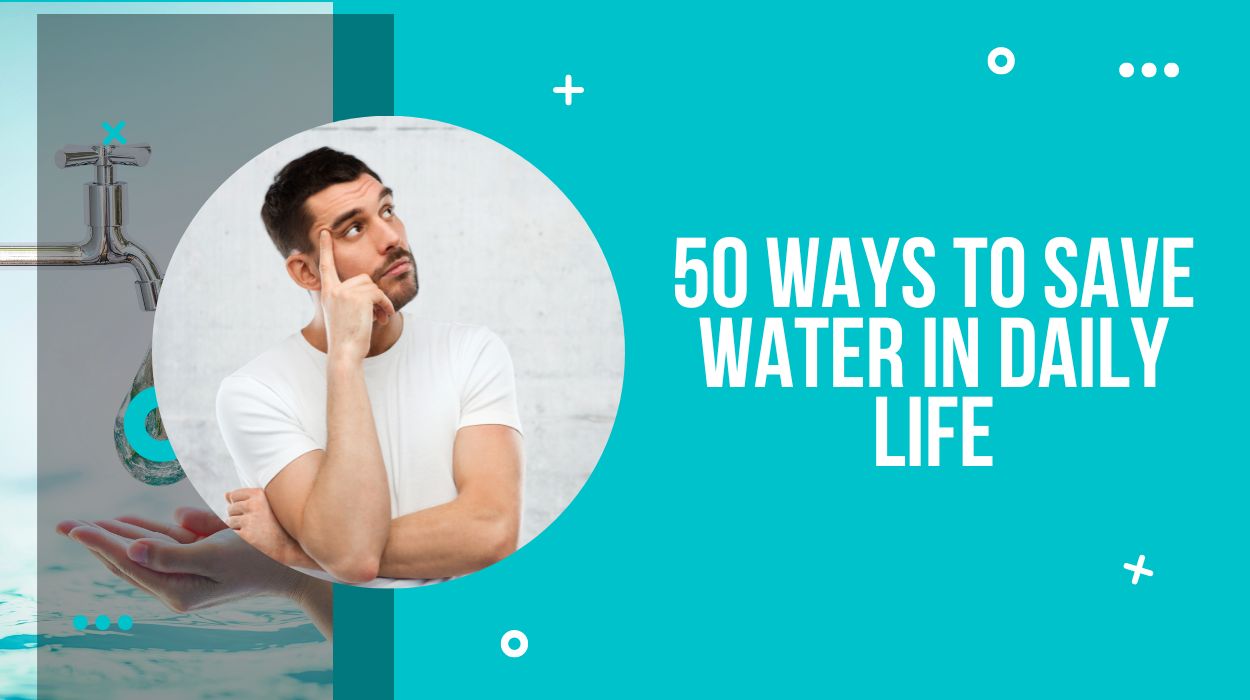According to a report published in 2019 by WHO and UNICEF, more than 785 million people did not have access to essential water services, while 884 million people did not have access to safe drinking water. This clearly shows the importance of saving water, and the first step to this starts at home.
In this article, let us look at a few ways to save water in our daily lives.
50 Best Ways to Save Water
1. Shower Instead Of Using A Bucket
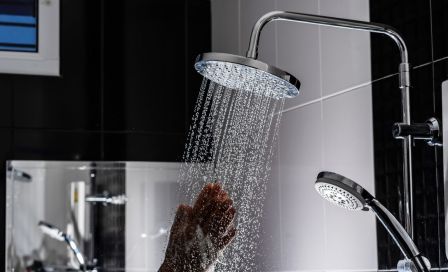
Most of us bathe using buckets thinking that it consumes less water, but in reality, we use less water while showering as our body gets wet quicker than bathing using a bucket.
2. Use A Dishwasher To Wash The Dishes
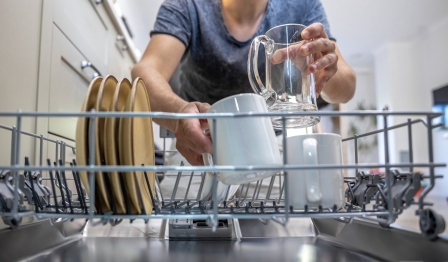
When we wash dishes one by one, we waste a lot of water. Some people even soap the dishes while the tap water is running. Imagine the amount of water that goes to waste!
The dishwasher helps clean the greasy food stain from multiple dishes easily in one wash cycle; hence the water consumed is less. Compared to cleaning by hand, a dishwasher is more efficient, consuming less time and effort.
3. Rainwater Harvesting
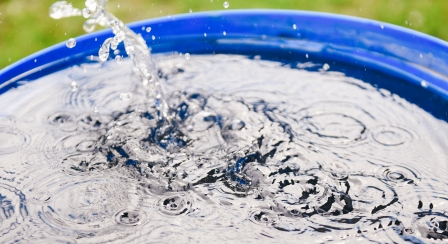
In simple terms, rainwater harvesting is a process by which rainwater collects into a tank that acts as a reservoir during a water shortage. Collection of rainwater happens in multiple ways. It is primarily collected from roofs and then transferred to the tank, which is a bottomless pit that stores groundwater.
This collected water can be used for irrigation, watering plants, and when filtered using water purifiers, it can also be used for drinking and cooking purposes. Rainwater harvesting helps reduce water bills to a great extent and is a great relief to people who face water shortages.
4. Avoid Flushing Too Much
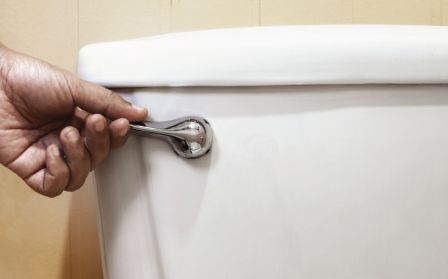
Use the washroom only when necessary, since flushing every now and then also results in water wastage. This can save gallons of water per year and can comparatively lessen the amount of water bill.
Another thing we should notice is whether or not the water flow stops after each flush. Most people just leave the bathroom after flushing without actually checking if the water stopped. If you find this problem, get a plumber to fix it.
5. Stop Using Sprinklers When It Rains Outside
Rains are considered a natural method to water plants, so watering them is not necessary when it rains. Rainwater is likely to be present in the ground for at least a month, and some of it even seeps down into the groundwater table. This helps the plants to absorb the water from the soil. However, do note that the water will dry up quickly if it is too hot outside.
6. Regular Toilet Maintenance
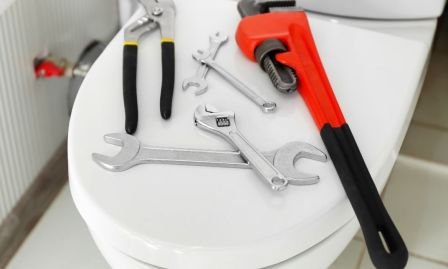
Have you ever found an unpleasant odour coming from the toilet? There is a high chance this is due to some leakage. A leak occurs when the seal under the toilet gets damaged. Water leakage in toilets can result in increased water wastage and your water bill. Even if there are no signs of leakage, check once or twice a year to be on the safer side. Regular maintenance is essential and can save you a lot of water and money.
7. Avoid Watering Drylands
The main reason why we should avoid watering drylands is that the soil may absorb more water during this time. The land becomes dry due to less rainfall or discontinuous water supply. So, for the ground to reach a state where it is not dryland, a lot of water is required, resulting in excess usage of water.
8. Avoid Throwing Bottles With Leftover Water
We all tend to buy water from shops, but after drinking, we become lazy to carry the bottle with water and throw it away. So instead of doing this, bring a bottle of water from home.
The idea behind this is, the bottle belongs to you; it is something that you need at home, unlike the plastic bottles you buy from shops. So, you would be a little bit hesitant to throw them away even if you get tired of carrying them. This not only saves water and money but also keeps our environment clean.
9. Introduce Water Recycling At Homes
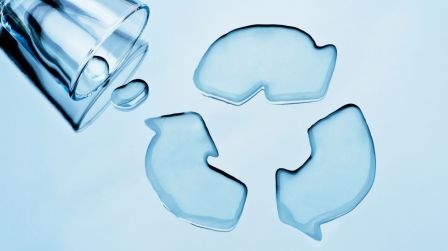
Water goes to waste in numerous ways, and sometimes we don’t even realise it. We can collect this water, recycle it and use it for other purposes at home. We can collect shower water or tap water that goes to waste and use it for watering plants, washing clothes, and even drinking and cooking after proper filtration.
10. Shorter Showers
Doctors suggest limiting the time we take to shower from five to ten minutes a day. Taking shorter showers reduces the usage of water so that we can save gallons of water a year. Shorter showers mean our body is soaked only for a short period; hence we don’t lose a lot of essential body oils either.
11. Don’t Do Laundry Every Day
To reduce water usage, do laundry once every two weeks. If you do not like to pile up the clothes, you can do it once a week. However, this is not an ideal option for large families as there will be lots of clothes to wash.
12. Avoid Water Games
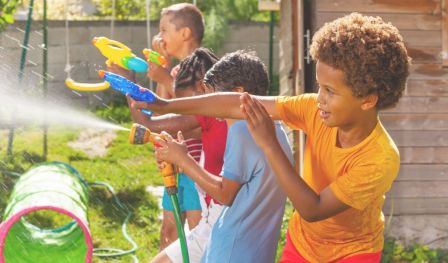
It is always fun to play in the water; no one can deny that. But water games require a lot of water which means gallons of water wasted. So, I would suggest avoiding water games whenever possible, but you are allowed to have fun once in a while.
13. Use A Bucket Of Water To Wash Cars
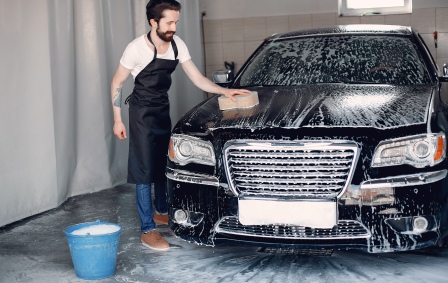
When we use a hose, we do not know how much water we use, i.e., we don’t know the exact quantity of water. But with a bucket of water, we know the exact amount. So, we know how much we use, waste, and save, and we have control over this.
14. Water The Garden Wisely
The best time to water the plants is in the morning, but this is not always possible with our busy schedule, so water it during the evening. It is considered the best time because it is usually cool during this time and water consumption is less. You can also use recycled water to water the plants.
15. Avoid Showers With Big Dispenser
A shower head with a big dispenser increases the amount of water that comes out. This can result in the wastage of water. So, while showering, always make sure you use a small shower head.
16. Drink From A Drinking Fountain
The working of a water fountain is simple, press the button, and the water comes out like a tiny fountain. But have you noticed the water that runs down the drain? This water does not go to waste; instead, it is pumped back to its source, where it is recycled.
17. Don’t Use Washing Machines Often
While doing laundry, make sure the washing machine is fully loaded so that all the clothes wash in one cycle. This saves a lot of water when compared to washing clothes in multiple half-load batches.
18. Try Not To Use Coolers
The cooling pads need to be soaked in water for the cooler to function and to produce cool wind. This consumes too much electricity and water. So if you think it is a luxury commodity and not a necessity, switch to fans.
19. Use Water In A Mug While Brushing
Our brushing routine involves brushing, washing our face, and so on. Let me ask you a simple question – how do you wash your face? Do you take water in your palm or use a mug? If you use your palm, notice how the tap is continuously running! A lot of water is wasted in this manner, so your best solution is to switch to a mug.
20. Use Food Colouring
This might seem a bit confusing to you but let me explain. Once in a while, flush the toilet after pouring in some food colouring. The aim behind this is to know if there are any leaks. If you find any coloured water on the floor, call a plumber to avoid it immediately.
21. Do Not Wash Veggies Too Much
If you find someone washing fruits and vegetables too much, especially after cutting the veggies, then let them know that this can wash away the vitamins and minerals. Not only do we waste water, but we also lose the necessary vitamins and minerals.
22. Bathe Your Pets In The Back Garden
Bathe your pet in the open instead of the bathroom. The ground can thus absorb the water instead of it simply going down the drainage pipe. However, make sure you use only mild soaps as it is ideal for both the pet and our soil.
23. Do Not Use Bathtubs
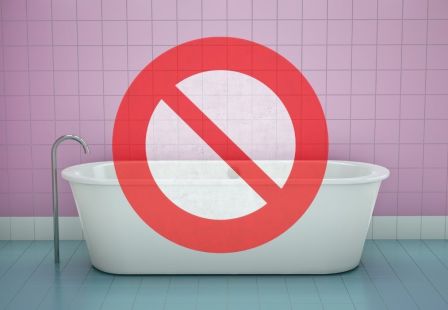
Avoid bathtubs at all costs as it requires more water than bathing using a bucket and also showering. The average capacity of a bathtub is about 100 litres of water, while a bucket is 10 litres. That is roughly around 90 litres going to waste.
24. Turn The Tap Off
We tend to leave the taps on while we brush, shave, wash plates, etc. Avoid doing this, and it can save you a lot of water and money. Instead, try filling a bucket or a mug with water and use water from it.
25. Limit Pesticides
Using pesticides has an extremely negative impact on the groundwater and can also degrade our health. We cannot consume this water unless it is filtered, which means less water is left for our consumption. So, limit your usage of pesticides, especially the ones that have high chemical content.
26. Awareness Classes In Schools And Colleges About Water Conservation
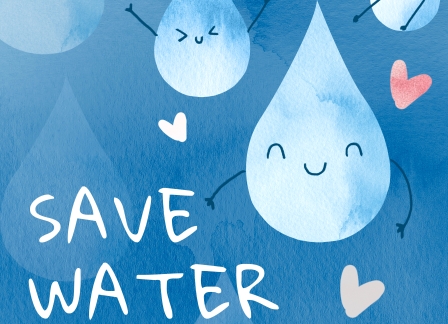
If you want to save water, start spreading awareness, and the best place to start is among children in schools and colleges. Once the common water consumption mistakes are pointed out and addressed, solving them will become easier
27. Using A Commercial Car Wash
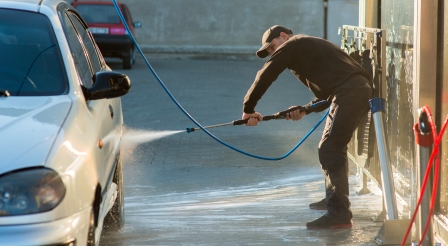
Commercial car washes use special nozzles to spray water at high pressure. Apart from this, they also filter and reuse their water. What better way to save water??
28. Water The Plants Profoundly But Not Frequently
The right way to water plants is by giving them a weekly soak. Make sure that the soil is wet to the depth of five to six inches. Light sprinkling will not seep in, and the plants cannot absorb it, so this type of watering is of no use.
29. Soak The Dishes Before Washing
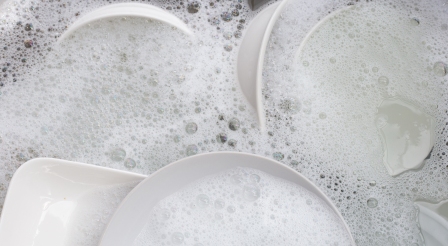
Close the sinkhole and fill it with warm water and soap. Dip all the dishes in and let them stay for some time so that the stains wash off easily. This ensures that we don’t use excess water while we scrape the dishes clean.
30. Teach Children To Use The Faucets Correctly
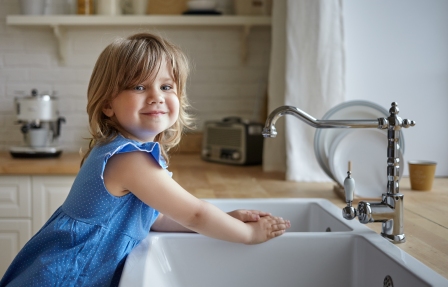
Most kids might have the habit of playing around with the faucet. What happens when they do this is a lot of water is wasted. Educate them on the importance of water so that they do not play with water. After using the faucet, teach them to turn it off tightly.
31. Changing Aquarium Water
If you own an aquarium, you would know the importance of regular maintenance for the healthy survival of fishes and underwater plants. You can reuse the aquarium water by watering plants. The nutrient content in the water will also help the plants to grow quicker and produce more yield.
32. Check Your Taps For Leaks
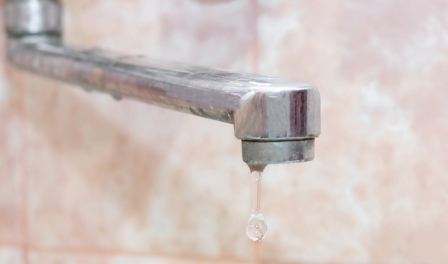
If the tap is not shut tightly or if there are any leaks, water can drip. Sometimes it is a slow process (small drips), so this goes unnoticed. Regularly check if there are any leaks and get them fixed.
33. Don’t Use Water To Clean Sideways And Walkways
Do you have a dusty sidewalk? Well, use a broom instead of water to clear the sideways. Once the water dries up, dust will collect again, so using water to clean the sideways would be a complete waste.
34. Use Organic Mulch Around Plants
Using organic mulch has numerous benefits like preventing erosion, certain plant diseases, etc. But it also helps the soil absorb water quicker; thus, evaporation and water wastage are less.
35. Do Not Water When The Sun Overhead
As mentioned before, water the plants early in the morning or late in the evening as it helps to lower the evaporation rate. Water evaporates quickly when the sun is overhead as the heat to the ground is direct.
36. Turn Off The Shower While Shampooing And Conditioning
Just like you should turn the tap off while brushing or shaving, you should turn off the shower while shampooing or conditioning (washing your hair). This helps in saving gallons of water.
37. Position Your Sprinklers
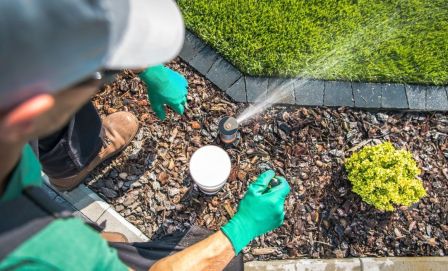
If you have a sprinkler system, set the timing correctly. Ensure that the sprinkler does not run when the sun is overhead. Also, position it the right way – make sure the water from the sprinkler lands on the lawn or the plants, not the streets, gutter, sidewalk, or concrete ground.
38. Don’t Water Too Much
Most plants tend to die due to excess water. Too much water can cause the roots to decompose and slowly die. When the roots die, the whole plant dies. So don’t excessively water the plants as it wastes water and might also kill the plant.
39. Stop Using Your Toilet As A Wastebasket
Most people have this habit of flushing down cigarette butts, tissues, diapers, sanitary napkins, and so on. Throw them in the dustbin instead! Not only does this clog the toilet, but it also wastes about five to seven gallons of water.
40. Support The Projects That Help Us To Save Water
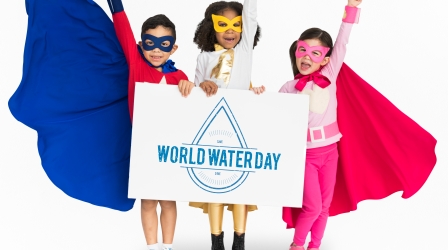
Rainwater harvesting in every house can save up more than 1,60,000 gallons of water a month. Support these types of projects and spread awareness to the crucial fact that if we overuse water, it will deplete.
41. Bathe Your Children Together
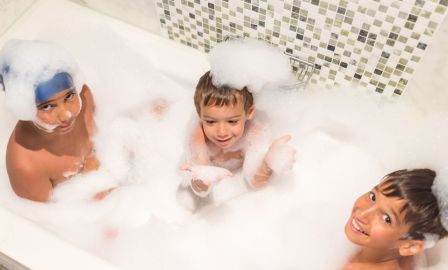
Are all your children around the same age? Well, bath them together – not only does it save water but they might enjoy it too. Just make sure they do not play around with the water.
42. Make Sure That Pools And Fountains Have Recirculation
Regular maintenance of the pools and fountains is a must and during the maintenance, ensure that the pool or fountain is equipped with recirculating pumps to avoid wasting water.
43. Do The Screwdriver Test
Use a screwdriver to test if there’s water content in the soil. If the screwdriver goes inside quickly, there is water content. If it doesn’t go in smoothly, you know there is less water content, and you can deep soak that area.
44. Check Pool Level
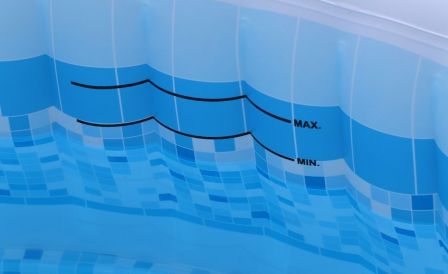
Use a grease pencil to mark the level of water each day. If the water evaporated more than 1/4-inch each day, then it means the pool has leaks. Fix this problem as soon as possible to save water.
45. Shut Down The Watering System During Heavy Leaks
Sometimes, it takes the plumber time to reach your house. During such times, the first thing to do is shut down the main water supply so that the leaks stop, especially if it is a significant leak.
46. Avoid Water Toys
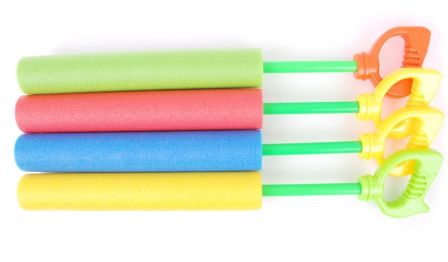
These toys require a constant flow of water which means more water wastage. It sure is fun to play with these toys but try to make your children understand the problem and offer to buy them a different toy.
47. Avoid Building Ornamental Fountains
These types of fountains, on average, require about five gallons of water, and it needs to be renewed at least twice a week since the water gets evaporated. So, I would suggest that you avoid building ornamental fountains at home.
48. Do Not Clean You Sideways On Windy Days (With Water)
As mentioned before, instead of using water, you can just use a broom. But on windy days, the wind tends to carry all the dust away. So, water is not essential to clean the dust on our sideways and walkways.
49. Avoid Using Running Water To Thaw Food
The most common method we use to thaw frozen food is by placing it under running water. It does defrost to an extend but think of all the water that goes to waste. Instead, try alternative methods like microwaving the food or heating it.
50. Upgrade The Washing Machine
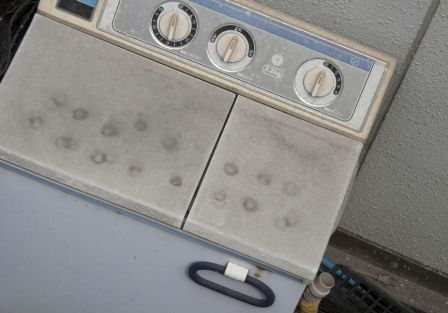
An upgraded washing machine can save up to 20 gallons of water. Also, try replacing broken faucets instead of fixing them (there is a high chance you might need to repair it now and then).
To Sum It Up
We can see how saving water is not very difficult. No matter your age, if you are shown the right way, I personally believe that you can save water. Change starts within, so be the change and help conserve water.

